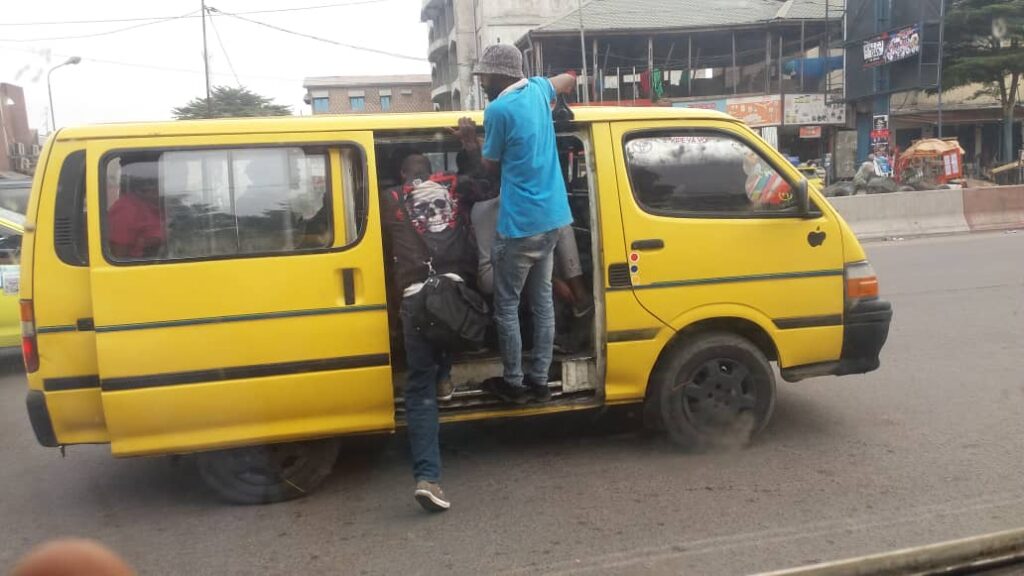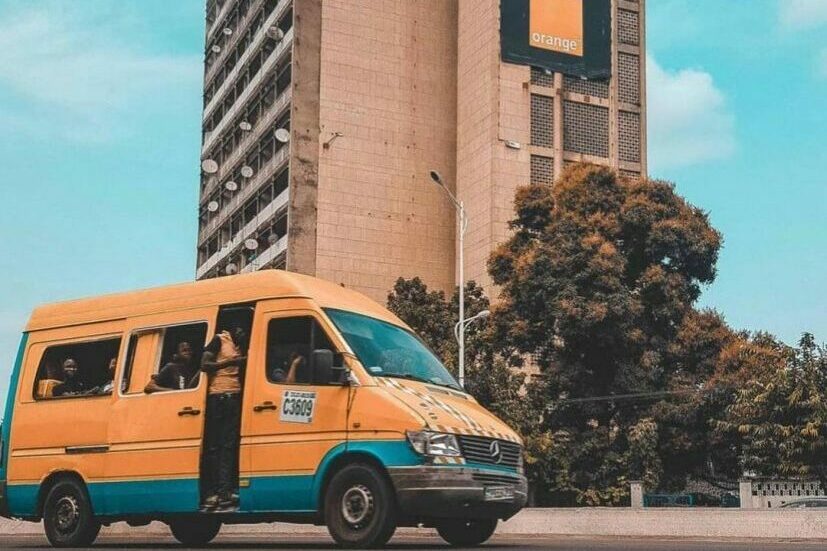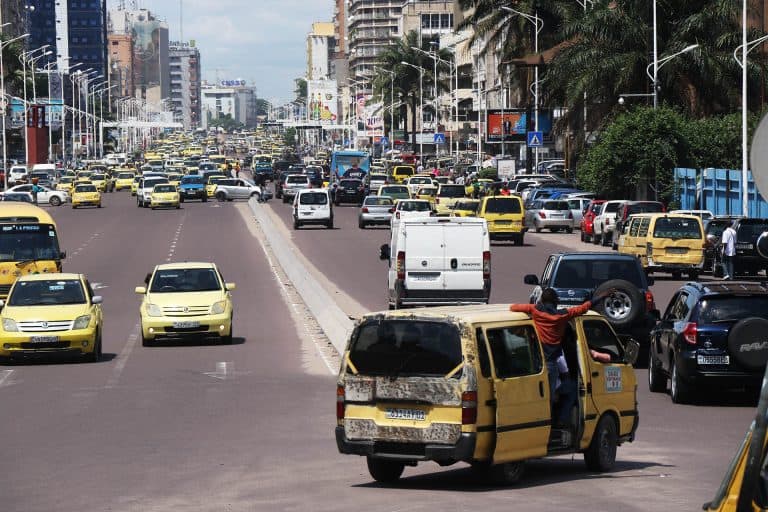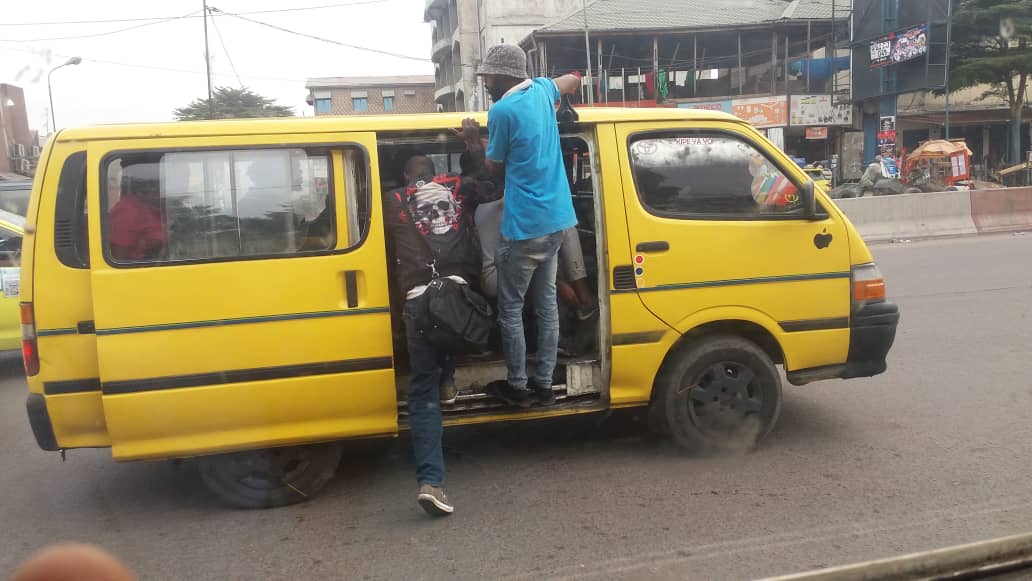For some time, we have been experiencing a very surprising situation in Kinshasa. The bus receivers (driver’s collaborators) now stand on the doors of the vehicles, serving as horns and mirrors, thus guiding the drivers behind the wheel. They are putting their lives in danger and this is happening under the helpless gaze of the competent authorities.
In Kinshasa, most public transport buses run without mirrors or horns. An astonishing situation, despite multiple instructions from the provincial commissioner of the Congolese national police, who requires vehicles to be well maintained, taking into account the physical control of these. But the receivers prefer the easier way, by standing, leaning on the doors of the vehicles, risking their lives after filling the bus with passengers.

But who are the recipients?
The collector in Kinshasa is the collaborator of the taxi bus driver, he is the collector of the transport costs from the passengers, he is the one who indicates the destinations and he acts as an intermediary between the customers and the driver. He therefore plays an essential role in each race, and manages the bus stops to drop off customers.

From now on, these collectors, also called receivers, stand on the doors of the buses to guide the driver, using their own working jargon. They have their own language for honking verbally or telling the other speeding vehicle to keep its lane and not to change lanes. They even decide when to overtake other vehicles. Here, for example, is what you can hear on Kinshasa buses:
- Eh is, eh is, eh is garder bande : to tell the other driver not to change lanes “be careful, you stick to us a little too much, keep your tape”
- Yaka naye : with these words the conductor tells the driver to overtake other vehicles while making an “OK” sign to the other drivers so that they wait for him to pass in front
- Get ready to deposit : the ticket collector tells the driver to position the vehicle correctly to drop off a customer who has arrived at his terminal
A dangerous but essential practice for drivers
This dangerous situation is made even more perilous in the early morning. Most of the recipients spend their evening in bars and consume very strong liquors, they sleep very little and in the morning some of them still smell of alcohol. Under the influence of alcohol and lack of sleep…. finally dramatic situations occur: some fall from open doors and die immediately. These situations question and frighten the passengers of the buses: how to entrust the life of a dozen passengers to a person who has a hangover and who has slept very little? This is putting the passengers in danger!
Although it is extremely dangerous, some drivers live with it.
Patrick Nzuzi is driver of a Sprinter, he did not wish to be photographed, but he agreed to explain to us the reasons for this practice and his motivation as a driver: ” Using the mirrors and the horn is good, but driving in Kinshasa is a real challenge, nobody respects the highway code, it’s very dangerous but we have to deal with it. Very often people don’t understand with a simple horn, it takes more than that, and that’s where receivers come in. At night everything gets mixed up, vehicles, headlights… you can’t see well and our receivers are a great help. If they are not there things become very complicated. Today we do not know how to do otherwise, we need receivers to drive.

This practice is a real challenge for the competent authorities. This shows a real lack of will on the part of the owners of these buses. Finally, drivers and collectors prefer to collect the money without maintaining their vehicle, which even provides them with this money. This situation is risky, it puts the lives of passengers in danger.
Hopefully this situation will change one day.
Time will tell…
